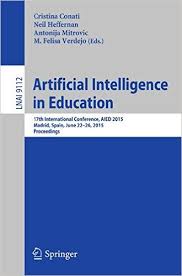Pedagogical agents as social models for engineering: The influence of appearance on female choice
The current work examined the influence of pedagogical agents as social models to increase females’ interest in engineering. Seventy-nine female undergraduate students rated pedagogical agents on a series of factors (e.g., most like themselves, most like an engineer, and most prefer to learn from). The agents were identical with the exception of differing by appearance/image in four aspects (age, gender, attractiveness, “coolness”). After selecting the agent from which they most preferred to learn, participants interacted with it for approximately 15 minutes and received a persuasive message about engineering. Results indicated that the women were more likely to choose a female, attractive, young, and cool agent as most like themselves and the one they most wanted to be like. However, they tended to select male, older, uncool agents as the most like engineers and tended to choose to learn about engineering from agents that were male and attractive, but uncool. Interacting with an agent had a positive impact on math-related beliefs. Specifically, the women reported more positive math and science related beliefs compared to their attitudes at the beginning of the semester and compared to a group of women who did not interact with an agent. Further, among the women who viewed an agent, the older version of the agent had a stronger positive influence on their math-related beliefs than the younger agent.

